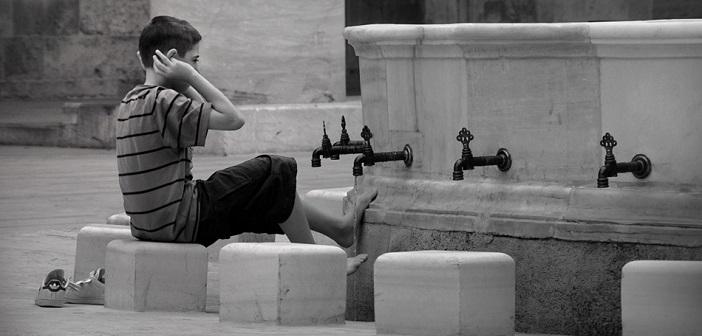
The Definition of Cleanliness and Its Importance (Shafii)
What are definition of cleanliness and it importance?
Cleanliness is important for a healthy living and also, in terms of religious purposes; it is a requirement before carrying out religious obligations (‘ibadah). Islam commands external purification and inner purification whereby one avoids bad habits, evil thoughts and inappropriate beliefs; this is spiritual purity.
I. Literal and Figurative meaning of Taharah
Taharah means cleansing and purity. In context, it means the removal of najasah and hadath, thus becoming purified.
II. The Importance of Cleanliness
Cleanliness is essential in Islam. Islam considers all types of cleanliness vital; spiritual cleanliness, environment, body and cleanliness of garment.
It is our duty to consume and utilize Allah’s countless blessings effectively. Cleanliness is required to maintain a hygienic lifestyle, and to avoid harmful microbes and bacteria. As the foremost reason for illnesses is impurity and lack of hygiene. A person who does not keep his clothing, food, body and environment clean is practically preparing a medium for ilnesses. Our body is Allah’s gift and blessing to us. Neglecting it would be mistreating Allah’s entrustment. Our Beloved Prophet was the best example of cleanliness. He has said: "When anybody wakes up from his sleep, he should wash his hands three times..” [1] Furthermore, the importance he has placed on teeth and mouth hygiene is remarkable, and can be seen by his hadith: “If it wasn’t going to be too difficult for my ummah, I would order them to brush their teeth (with a miswak) before every prayer."[2]
Islam’s commanding of spiritual and external purification and hygiene shows us the status of cleanliness in Islam. Before every prayer, ablution or ghusl (if needed) is a prerequisite, before eating or drinking – washing hands is a prerequisite in Islam.
External and internal purification is vital for performing religious obligations (‘ibadat). For example; to be able to pray (salat), a Muslim must get rid of his spiritual impurities (by performing ablution or ghusl) along with his material impurity.
It is required to be clean before standing in the presence of Allah for worship. The second command regarding purity was “keep your clothes clean.” Allah, in the following verse orders the Prophet and the believers to be pure – spiritually and externally; "Purify your garments, and avoid defilement."[3]
Just as we perform our ‘ibadat with care, we must consider the spiritual dimension of it. Every act of worship should move our soul, as worship that involves the movement of the body however does not affect the heart, has no real value. Thus, the worshipper, before carrying out his obligation, must remove all selfish thought and conscious – all that is other than the will to please Allah.
Allah has praised those who are clean in the following manner:
"...Allah loves those who are constantly repentant and loves those who purify themselves.."[4]
"... Allah loves those who purify themselves."[5]
The Prophet (p.b.u.h) has said:
“Allah is pure and he loves purity (cleanliness) and those who keep themselves pure.”[6]
[1] Sünenü't-Tirmizî, Babu't-Tahare, 24.[2] Sünenü't-Tirmizî, Bâbu’t-Tahare, 22, 23.
[3] Surah Muddathhir, verses 4-5[4] Surah Baqara, verse 222
[5] Surah Tawba, verse 108[6] Sünenü't-Tirmizî, Bâbu'l-Edep, 2950.
Source: Fiqh1 (According To The Shafi’i School Of Islamic Law), Erkam Publications
The Definition of The Science of Fiqh (Shafii)
The Importance of The Science of Fiqh (Shafii)













